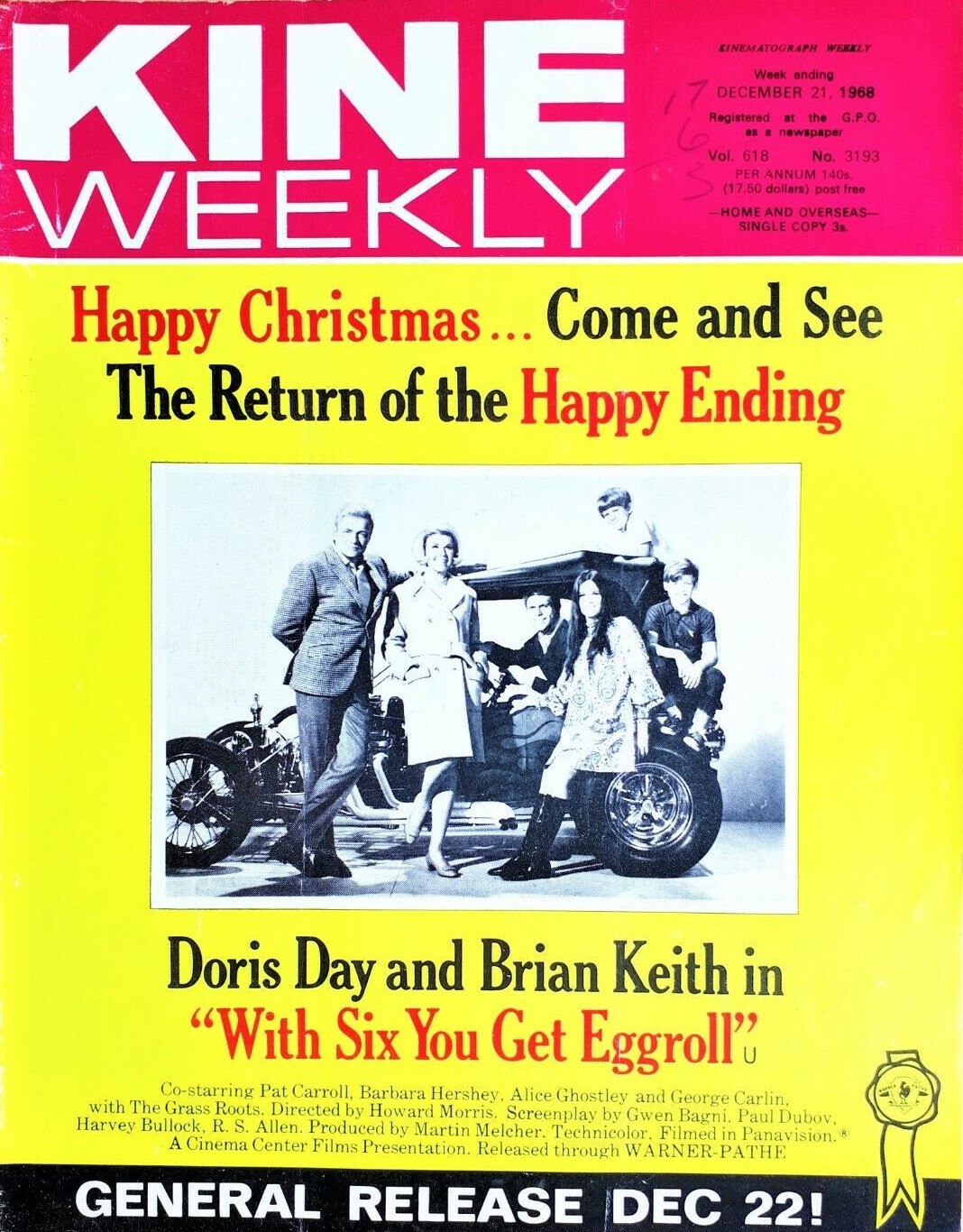The blended family was so rare in the 1960s you could easily play it for comedy. In retrospect, though, this comes across as a more realistic approach at how game couples find their romance under threat from children hostile to the match. Doris Day’s swansong, she might have done better with a partner zippier on the uptake than Brian Keith, who for the most appears lumpen, and she shoulders most of the physical comedy burden, but it’s a decent end to an extraordinary career. There are shades of Absolutely Fabulous, children remonstrating with parents going off the rails.
Widow Abby is very much the independent woman, running a substantial lumberyard operation, too busy to consider romance and aware her options are limited to deadbeats. She can afford help for the domestic chores. Widower Jake (Brian Keith) faces endless frozen meals and could have as much sex on the side as he wants with married neighbor Cleo (Elaine Devry) whom he constantly rejects. She has three sons, one a teenager who works part-time in the business, he has one daughter, Stacey (Barbara Hershey) also a teenager.

Courtship gets off to a rocky start. Jake, invited to a dinner, is so bored he makes an excuse and leaves, caught out in his lie later that night. Most of the romance takes place in a drive-in hot dog operation since the children make it plain they oppose any union.
But, hey, since the story is also dragging, the couple decide to get married quick. That’s when the trouble starts. Neither house is big enough to accommodate the squad, irritation spills over into full-blown argument, and little can be done to placate the kids, who resent being forced into a situation over which they have no control and having to share a doting parent with a stranger.
Family planning was another big issue in the 1960s and this was an unintended offshoot, the couple making no provision in advance, beyond their own selfish needs, for how their marriage would emotionally affect their children. And although the happy ending doesn’t feel too forced, it does point up the problems of turning two rival families into one supportive team.
Back in the day. audiences probably laughed their heads off at the antics of the disapproving teenagers, but I think most people would approach those scenes with sorrow rather than humor, acknowledging the despair of ignored children facing up to dealing with what they regard as an intruder upsetting a settled family unit. The assumption that kids will make do while parents embark on a joyous ride seems only too unrealistic.

You can see some scenes coming a mile off. When Jake gets too close to a younger woman you guess right away that’s bound to be his daughter and the minute you spot a lorry loaded with chickens you are counting the moments before unexpected collision sets them free. But once the movie settles into the meat of the story it’s on pretty safe ground.
It’s at its best when Doris Day (Midnight Lace, 1960) is permitted space to indulge in physical comedy. The scene where she ends up with a yellow stripe on her attire is priceless and her driving of a camper van leaves much to be desired. Brian Keith (The Deadly Companions, 1961) only has to deal with temperamental cupboard doors. While he’s not in the class of her previous romantic companions like Clark Gable (Teacher’s Pet, 1958), Rock Hudson (Pillow Talk, 1959), Cary Grant (That Touch of Mink, 1962) or James Garner (Move Over, Darling, 1963) by this point in her career she was more than capable of carrying any movie.
Both teenagers were making movie debts, Barbara Hershey (Last Summer, 1969) coming off best as the sullen female while John Findlater (Airport, 1970) is little more than her companion in creating chaos.
Director Howard Morris (Who’s Minding the Mint, 1967) puts on a decent show given the material. The script was written by Gwen Bagnit, whose last movie credit (western The Last Wagon, 1956) was a decade before, her husband television writer and sometime actor Paul Dubov, and Harvey Bullock (Who’s Minding the Mint).
It’s not quite the career finale Doris Day might have hoped for, but the box office was respectable especially as it faced severe competition from Yours, Mine and Ours (1968), which doubled down on family members, the year’s sleeper hit.
Harmless comedy, perhaps, but the passing of the years has given the movie unexpected emotional heft.



